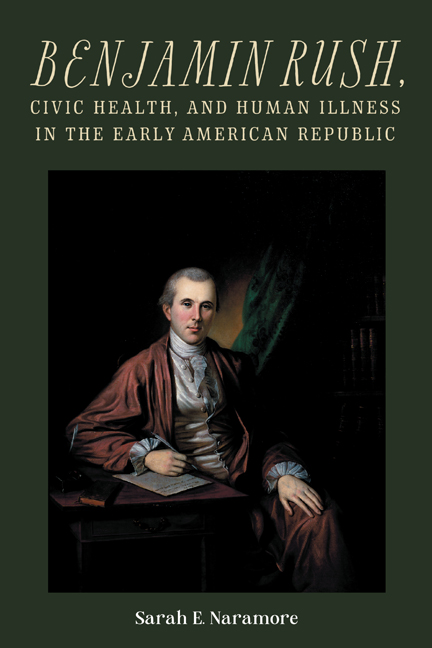Overview
Published online by Cambridge University Press: 10 January 2024
Summary
Part I of this book followed Benjamin Rush's career from student to leader of the American medical profession. Along the way he accumulated experiences that convinced him that the United States required a new medical system, one suited to the bodies, societies, and climates of the republican United States. That system—like many theories of eighteenth-century health— focused on the interconnectedness of bodies and the mental and physical spaces that surrounded them. It also took seriously the idea that the same kind of organization (in this case a broad interpretation of “republicanism”) was suitable to both bodies and societies. As Rush became a committed republican, he also saw bodies through that lens. Citizens of a republic required a different kind of medicine than subjects of an empire. Moreover, bodies themselves acted as mini republics. As discussed in chapter 2, different organ systems needed to work together in a dance of checks and balances to keep excitement flowing regularly. Chapter 3 discussed how other physicians acted as sources of knowledge and partners in creating the “American system” and chapter 4 demonstrated how medical practice and ideas of sex and racial difference intersected with Rush's work.
Rush's system, however, has been treated as theoretical to this point. This second part of this work asks the question, how did Rush actually use his system? The medical worldview of Benjamin Rush operated in the classroom, the sickroom, and in the public square. The following chapters argue that he did so expansively. The “American System” informed the seemingly disparate projects of Rush's life and medicalized numerous social and political issues. Rush's republic was a self-governing machine in which community members obeyed laws, worked diligently, espoused virtue, and worked together for the greater good: the mental and physical health of the nation. This version of governance by active citizens models the actions of other politically and socially minded physicians of the time, especially Rush's Scottish colleagues and teachers. Rush viewed an American republic that took the principles of voluntary organizations, educational opportunity, and intellectual leadership associated with his Edinburgh experience and moved them from the periphery to the center of national life.
- Type
- Chapter
- Information
- Publisher: Boydell & BrewerPrint publication year: 2023



